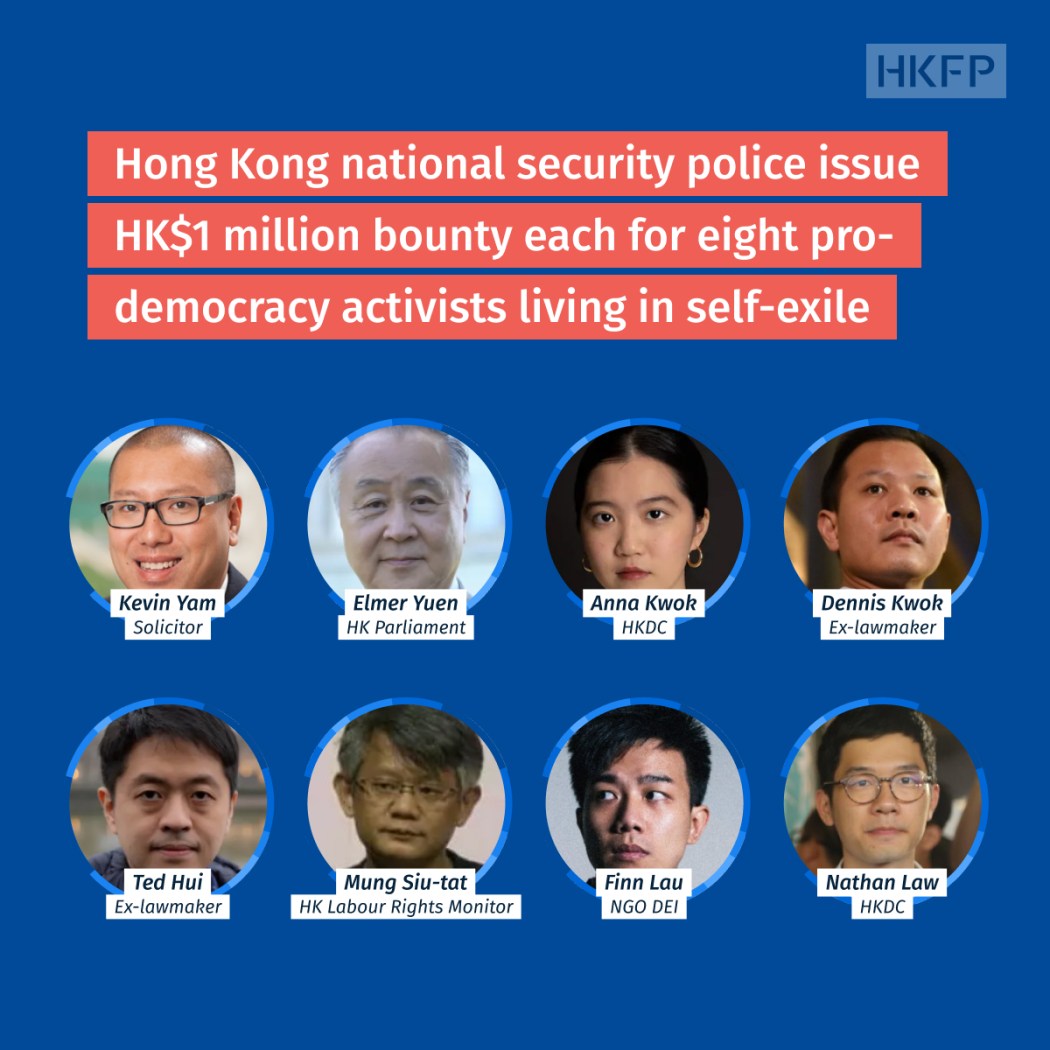Hong Kong’s security minister has slammed the Wall Street Journal as having “extreme political bias and double standards,” following an editorial that criticised China reluctance to recognise international boundaries. Meanwhile, the International Criminal Police Organization (Interpol) says it has not received an “Red Notice” from Hong Kong, nor can it act over political offences.

Secretary for Security Chris Tang’s letter to the newspaper on Tuesday came two days after national security police issued warrants for the arrests of ex-lawmakers Ted Hui, Nathan Law and Dennis Kwok; activists Anna Kwok, Elmer Yuen, Mung Siu-tat and Finn Lau; and solicitor Kevin Yam, each with a HK$1 million bounty.
The US, UK, and Australia have all issued statements decrying the warrants and condemning the extraterritorial application of the national security, while Chief Executive John Lee has called on “anyone,” including friends and family members, to assist in the arrests of the wanted individuals.
International practice
In a letter to the Journal, Tang said the issuance of the warrants aligned with international standards.
“It is a common practice of the Police and other law enforcement agencies to release information of fugitive offenders who have allegedly committed serious offences and are wanted, and appeal to members of the public to assist in bringing fugitive offenders to justice,” he said, adding that doing so is “squarely in line” with international practice.

The Wall Street Journal editorial, titled “Hong Kong’s Global Bounty Hunters,” cites the city’s Security Bureau as saying that the “police have the responsibility to pursue the liability of those who have allegedly committed offences under the National Security Law outside Hong Kong,” because of the national security law’s “extraterritorial effect.”
“It’s also a reminder that China recognizes no international boundaries to its police state,” the editorial read, going on to say that two men were charged in April for “operating an illegal secret Chinese police station in Manhattan” — one of dozens around the world used to “monitor and harass Chinese abroad.”
The editorial said Kwok’s calls to bar leader John Lee from the Asia-Pacific Economic Cooperation summit was a “good idea,” saying that “free societies need to show China and Hong Kong that we take our own laws as seriously as Hong Kong and China so readily abuse theirs.”

Tang also said that the editorial’s suggestion that China and the HKSAR should be held to the standards of other jurisdictions is “sheer hypocrisy.” He also said the editorial had “[turned] a blind eye to the clear fact” that the eight suspects have allegedly continued to engage in acts endangering national security.
No Interpol notice
Interpol told HKFP on Tuesday that no requests for a Red Notice or Wanted Persons Diffusion for the eight activists had been received.
The global policing group also said that it is strictly forbidden from undertaking any intervention or activities of a political, military, religious or racial character, and its activities should be conducted in the spirit of the Universal Declaration of Human Rights.
“Interpol does not issue arrest warrants nor can it compel any of its 195 member countries to arrest or extradite an individual, ” a spokesperson said. They added that “a member country can request Interpol to issue a Red Notice for an individual who is subject of a valid national arrest warrant.” However, a Red Notice is not an international warrant, it said.
Support HKFP | Policies & Ethics | Error/typo? | Contact Us | Newsletter | Transparency & Annual Report | Apps
Help safeguard press freedom & keep HKFP free for all readers by supporting our team


























